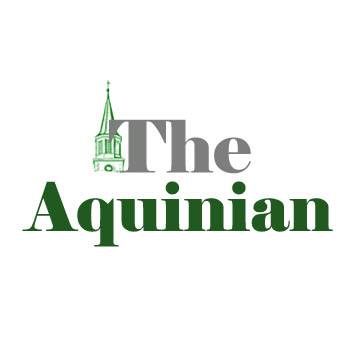After the attacks in Paris last week which killed 130 people, the Islamic State, also known as Daesh or ISIS, has thoroughly penetrated the consciousness of the West.
Once again, we’re hearing politicians and pundits talk about the “clash of civilizations,” the suitability of Muslim immigrants and even war.
But is the Islamic State even Islamic? Is jihadism more accurately seen as a cancer on one of the world’s major religions? Are Western incursions in the Middle East to blame, or do fundamentalist states like Saudi Arabia and Iran fuel this fire? There are fundamentalist Christian groups preaching hate yet we still call them Christian. Does the same logic apply to the Islamic State?
Alexandra Bain, a professor in the Religious Studies Department, has been researching young men and women who have left the West to join ISIS and other jihadist groups fighting the Syrian army and collecting their narratives.
For her, it’s a clear-cut answer – yes.
“The Islamic State follow a Salafi-Jihadist interpretation of Islam which is modern, conservative and literalist, and based upon Islamic principles as they’re understood by this particular movement within the Muslim world,” Bain said.
She says the Islamic State ideology differs from normative Islam through two principles: takfir; the act of accusing Muslims of apostasy, and Al Wala’ Wal Bara’; which as Salafi jihadists understand it, is the concept of unconditional love toward fellow Muslims and absolute hatred of disbelievers.
She said unlike other Muslims who allow and even celebrate differences of opinion, Salafi jihadists – and that includes ISIS – reject all other interpretations of Islam.
“There is a saying of the prophet Muhammad that anyone who declares another Muslim to be a non-Muslim, who declares takfir upon another Muslim; if they are wrong, it returns upon one of them,” Bain said. “This means if you are wrong, you actually end up nullifying your own Islam.”
She said other Muslims would not think it their right to make such a judgment and they would leave it in the hands of God.
“So by turning around and saying that the Islamic State is not Muslim, they would be virtually doing the same thing,” she said.
What separates the Islamic State from other jihadist groups, like al-Qaeda, is that ISIS sees al-Qaeda as siding with the enemy, which, in their eyes, nullifies their Islam. On top of this, ISIS has declared a Caliphate and decreed that those Muslim who do not recognize it as such are no longer Muslim, and have instead become enemies of the state.
Shaun Narine, a professor in the Political Science Department, said it is too early to tell if the recent attacks signify any change in how we approach ISIS.
“(But) it is pretty clear that (the Europeans) are responding differently than the past and they’re going to come up with some sort of approach that somehow reflects their greater concern with the influence of extremists and political violence,” Narine said.
The majority, if not all, of the attackers in Paris were EU citizens, which indicates to Narine the bigger problem for the Europeans is why citizens are ready to turn against their state.
Narine says many European countries include Muslims who feel discriminated against, which creates a breeding ground for Islamic radicalization.
Both Narine and Bain says these attacks seem out of the blue, they’re not. Most people just don’t see the whole context.
“ISIS is a direct product of the American invasion of Iraq,” said Narine. “It’s a product of Western intervention that took place well in the spans of our lifetimes, just a few years ago, that has ended up with a very predictable outcome.”
The Islamic State doesn’t simply hate the West for our way of life,” said Bain. “Their objection is deeply rooted in feelings of anger and humiliation as a result of their subjugation by the colonial powers after the dissolution and dismemberment of the caliphate in 1924, and by the more recent support of despot leaders such as Assad by the Western powers.”
For Bain, it is only through this context that we can get an accurate understanding of what ISIS is and why they do the things they do.
Or do we also need to ask, as Kamel Daoud does in an op-ed reprinted in the New York Times this week: Does the West also need to acknowledge that fundamentalist Islam is practiced and promoted by the Islamic state of Saudi Arabia, and that this Wahhabi fundamentalism is rooted in the 18th century?
“Daesh has a mother: the invasion of Iraq. But it also has a father: Saudi Arabia and its religious-industrial complex,” writes Daoud.
Narine, although not certain, said he’d bet increased military action from the West is exactly what ISIS wants, along with a further alienation of the Muslims in the West to polarize the Muslim world and the Western world.
So should we change the Islamic State’s name so at least we don’t associate them with tradition Islam and further isolate Muslims?
For both Narine and Bain, a name change is not going to be enough.
“You can make the argument they’re a distortion of Islam, but I don’t think you can deny they represent a certain idea of Islam,” Narine said. “We should be able to draw a distinction.”
“(A name change) doesn’t address the real problem.”

